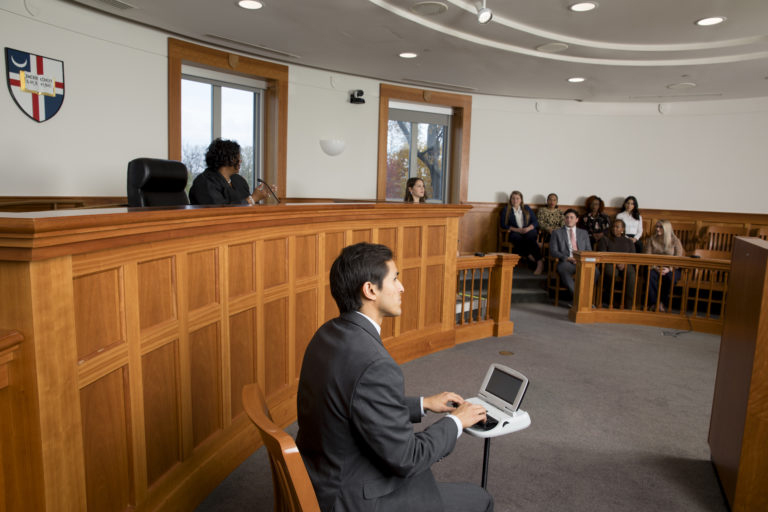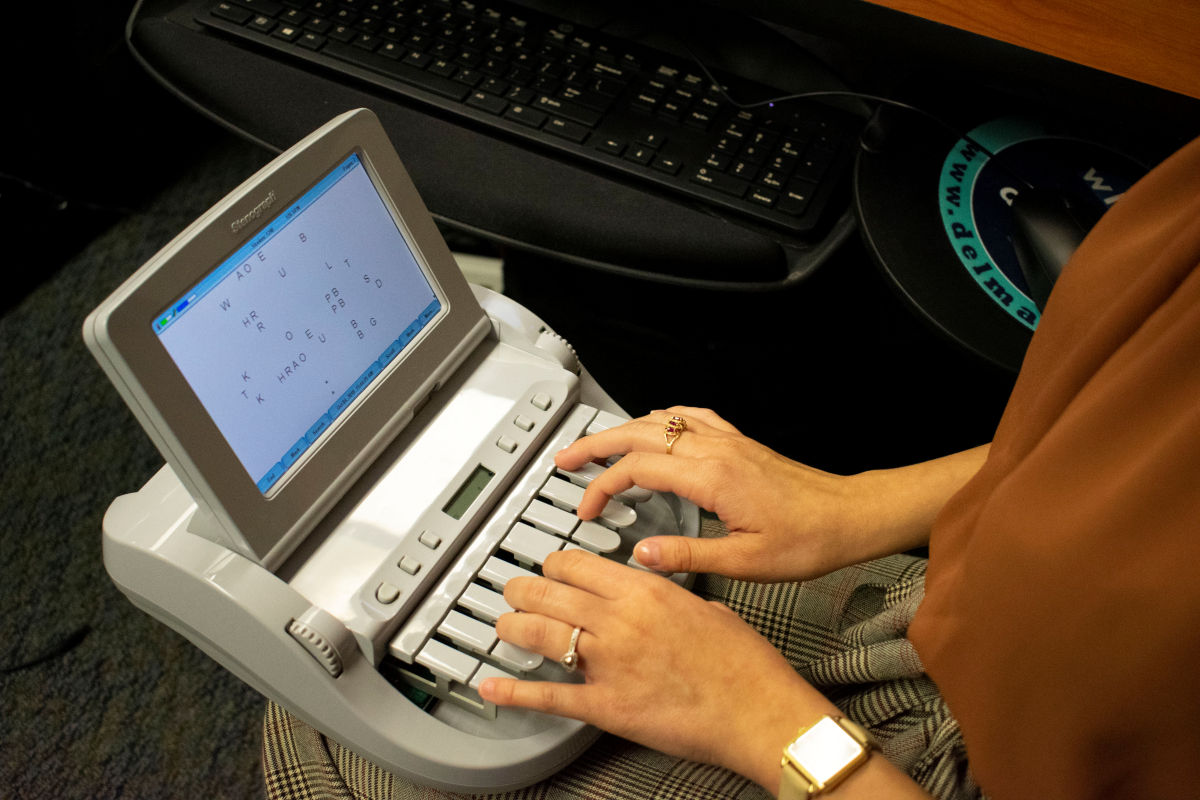The Connection Between court reporting and Equitable Trial Outcomes
The Connection Between court reporting and Equitable Trial Outcomes
Blog Article
Recognizing the Vital Role of Court Coverage in Legal Procedures
Court reporting is often neglected, yet it's essential in legal process. You might not recognize how court press reporters guarantee every word talked is recorded precisely, impacting decisions made by discretionary. Their skills and innovation play a substantial role in preserving the honesty of legal records. What precisely does the procedure involve, and exactly how has it evolved over time? Let's discover the fundamental features of court reporting and its value in the lawful landscape.
The History of Court Reporting
Court reporting has a rich history that dates back to ancient people, where scribes utilized numerous approaches to catch talked words. By the 16th century, modern-day shorthand systems began to take shape, allowing court reporters to produce precise records effectively.
Today, court reporters play a considerable role in lawful process, ensuring that every word spoken in the court is properly documented. Recognizing this history highlights the value of court coverage in maintaining a reasonable lawful system.
The Skills Required for Court Reporters
As a court press reporter, you need strong keying abilities to stay on par with the busy dialogue of legal process. Your ability to listen diligently is simply as necessary, guaranteeing every word is recorded precisely. Understanding these skills is vital to providing specific and reputable records.
Efficient Keying Abilities

Strong Listening Abilities
Strong listening skills are vital for court reporters, as they have to properly capture talked words in real time. This ability helps you distinguish between audio speakers, understand lawful lingo, and follow intricate discussions. Inevitably, strong paying attention abilities make you an essential asset in legal process, making sure clearness and precision in the court document.
The Modern Technology Behind Court Reporting
In the domain name of lawful process, technology plays an important duty in boosting the accuracy and efficiency of court reporting. You're most likely familiar with the conventional stenotype equipment, yet modern-day stenotype reporter currently utilize innovative software program that incorporates with these makers, permitting real-time transcription. This indicates you can have immediate accessibility to the records as the process unfold.
Digital audio recording is another technological improvement that's getting grip. It records every talked word, assuring nothing is missed out on. Some press reporters use voice acknowledgment software application, which can assist simplify the transcription process, though it still needs human oversight for precision.
Furthermore, cloud-based storage allows easy accessibility and sharing of records, boosting partnership among legal teams. By leveraging these technologies, court reporters can supply high-quality, timely documents that are important for the legal procedure. Embracing this tech not only boosts your understanding yet additionally assures integrity in lawful paperwork.
The Court Reporting Process

As legal procedures unravel, the court reporting process becomes essential in recording every information accurately. You'll locate that a stenotype reporter plays an important role by recording talked words into composed message in real-time. When you enter the court, the reporter is already prepared, geared up with specialized tools like stenographic devices and audio recording devices.
Throughout the proceedings, the press reporter pays attention attentively, keying out everything said, from witness statements to lawyers' disagreements. You might see them stopping briefly occasionally to assure clarity or to request for a repeat if something had not been clear. After the session, the press reporter evaluates the records, making necessary edits for readability.
This entire process not only guarantees a comprehensive document however additionally prepares you for future referral during allures or situation testimonials. In the busy atmosphere of a court go to my site room, the court reporting procedure is necessary for preserving a precise account of occasions.
The Significance of Accuracy in Transcripts
While a stenotype reporter's key duty is to transcribe spoken words, the precision of these records is critical for the stability of legal proceedings. When you're associated with a situation, you count on specific documents to comprehend the occasions and arguments presented. Any type of mistakes in transcription can lead to misconceptions, misinterpretations, and even wrongful judgments.
Precise records ensure that every information is recorded, providing a trusted record for judges, attorneys, and juries. This level of information is essential throughout allures or when referencing past testaments. If a records has inaccuracies, it can weaken the entire lawful procedure, possibly affecting results.
Additionally, precise transcripts support the civil liberties of all parties included, promoting justness and transparency. So, whether you're a lawyer preparing for trial or a witness reflecting on your testament, you can rely on that the stenotype reporter's ability in accuracy plays a significant role in your case's success.
The Role of Court Reporters in Various Lawful Settings
Court reporters play a necessary function in different legal settings, from tests to depositions and legal hearings. You'll find that their work assurances every spoken word is accurately captured, which is critical for the lawful procedure. Understanding how their duties differ throughout these environments can highlight their influence on the justice system.
Court Reporters in Tests
In any kind of legal trial, you'll locate that court reporters play an essential role in recording the procedures with precision and precision. They record whatever talked in the courtroom, guaranteeing that every word is recorded for future recommendation. This document ends up being important for appeals, permitting greater courts to review the test's stability. Court reporters need to keep focus and rate, commonly making use of specialized tools to stay on top of hectic discussion. Their job supports legal representatives, courts, and courts by supplying an official account of testimonies and disagreements. If inconsistencies arise, the transcript works as a dependable resource to clarify what was said. Eventually, court press reporters help copyright the justice system, making certain transparency and accountability throughout trials.
Depositions and Legal Hearings
Beyond trials, stenotype reporter additionally play a vital role in depositions and legal hearings. Throughout these process, they catch every spoken word, guaranteeing an exact record of testimonies and discussions. You'll find that this accuracy is necessary, as depositions often act as a structure for later disagreements in court. Court reporters provide real-time transcription solutions, allowing attorneys to adhere to along and address any type of problems right away. Their work boosts the performance of legal hearings, making it easier for all celebrations to refer back to the official record. In addition, the records they create can be considerable for allures and various other lawful procedures - court reporting. Basically, court reporters are indispensable in maintaining the stability and clarity of the lawful record in depositions and hearings.
Future Trends in Court Reporting
As technology remains to advance, the future of court coverage promises to be shaped by ingenious tools and methods that boost accuracy and effectiveness. You'll likely see boosted use man-made knowledge and real-time transcription services, streamlining the reporting procedure. These advancements can aid you gain access to transcripts quicker, which can be vital for your legal techniques.
Additionally, incorporating video clip conferencing and remote coverage will certainly end up being much more common, allowing you to get in touch with court reporters from anywhere (court reporting). This flexibility can make depositions and hearings much more easily accessible, conserving both time and sources
You'll likewise observe an emphasis on electronic recordkeeping, which simplifies the storage and access of transcripts. With cloud-based options, you'll have the ability to share files you can try this out securely and work together with your lawful team in real-time.
Regularly Asked Concerns
What Is the Average Income of a Court Reporter?
The typical income of a court reporter differs by location and experience, however you can anticipate it to range from around $50,000 to $80,000 each this contact form year. Several aspects affect this income, consisting of field of expertise and need.
Exactly how Do I End Up Being a Qualified Stenotype Reporter?
To become a licensed stenotype reporter, you'll need to finish a court reporting program, pass a qualification exam, and gain practical experience. It's critical to remain upgraded on sector requirements and proceeding education and learning needs.
What Types of Instances Do Court Reporters Cover?
Stenotype reporter cover numerous situations, consisting of criminal trials, civil claims, depositions, and adjudication hearings. You'll locate them documenting every little thing, ensuring accurate documents for judges, attorneys, and events entailed, recording every word spoken in legal settings.
Are Court Reporters Required to Have a Level?
Yes, court reporters typically require a level or accreditation in court coverage. Numerous programs supply specialized training, ensuring you gain the abilities essential for accurate transcription and legal documents in different setups.
Can Court Reporters Job From Another Location?

Report this page